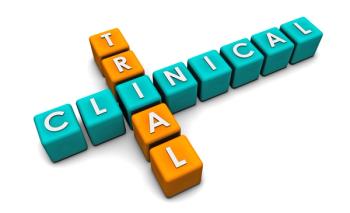
Lifestyle Psychiatry: Evidence-Based Lifestyle Interventions for Mental and Physical Health
What is lifestyle psychiatry, and how can it benefit our patients?
CLINICAL REFLECTIONS
Psychiatry has had multiple evolutions over time, from the incarceration of the “mentally insane” to the era of Freudian psychoanalysis to the discovery of psychotropic medications. Another potential evolution may be in the works with the research stemming from fMRI, connecting the brain-gut-microbiota system, and neuroplasticity. One such approach that has compelling data is lifestyle psychiatry.
Our psychiatric colleagues in Australasia and Great Britain have developed guidelines for using lifestyle interventions to prevent and treat mental illness and to alleviate suffering for subsyndromal states for overall well-being.
In 2023, the Australasian Society of Lifestyle Medicine, in partnership with the World Federation of Societies for Biological Psychiatry,1 published guidelines for lifestyle interventions for major depressive disorders that expand formulations to include the biopsychosocial-lifestyle model.2
Lifestyle psychiatry finds its roots in the field of lifestyle medicine, which aims to prevent and treat chronic medical illnesses like diabetes, cardiac conditions, and cancer with lifestyle interventions. Expanding this discipline to include mental health is compelling because of the impact and the bidirectionality between physical and mental health.
The American Psychiatric Association (APA) has now joined the conversation with the publication of Doug Noordsy, MD’s, Lifestyle Psychiatry (APA Publishing, 2019) and the formation of the APA Lifestyle Psychiatry Caucus in 2023. Additionally, in December 2023, Merlo and Fagundes published Lifestyle Psychiatry: Through the Lens of Behavioral Medicine, which offers a behavioral medicine lens that serves as a guide for primary care and psychiatric clinicians.
APA President Ramaswamy Viswanathan, MD, DrMedSc, also announced that the theme for the 2025 Annual Meeting will be “Lifestyle for Positive Mental and Physical Health.” A Presidential Workgroup was approved by the APA Board of Trustees in June 2024 and charged with creating educational material for APA members over the next year. The Workgroup is chaired by Gia Merlo, MD.
What is Lifestyle Psychiatry?
Lifestyle psychiatry is an emerging evidence-based field that employs a conventional medicine lens (as opposed to complementary/alternative medicine) to psychopathology and focuses on lifestyle interventions that can often be used as adjuncts to decrease symptoms of syndromal and subsyndromal states and, at times, may prevent and treat chronic diseases.3
Lifestyle psychiatry can be seen as a psychiatric approach to lifestyle medicine, which is an evidence-based approach to helping individuals and families adopt and sustain healthy behaviors in preventing, treating, and reversing diseases. Lifestyle medicine is based upon 6 pillars: eating healthier, getting appropriate levels of sleep, exercising adequately, having healthy relationships, decreasing stress, and avoiding harmful substances.4
Lifestyle psychiatry applies these evidence-based principles to improve brain health, using the same 6 pillars, and encourages a more patient-centered approach to change by partnering with patients to promote agency and self-efficacy. Evidence has shown that patients find this approach acceptable, as it aligns with their personal values, and that it would be effective as well.5
Lifestyle psychiatry also addresses the importance of social determinants of health, personality and individual factors, trauma, cognitive and behavioral approaches, positive psychology, biopsychosocial-lifestyle model of health, age-related diseases, and brain health.6 Ultimately, by employing a transdiagnostic approach, lifestyle psychiatry may be a more effective way of targeting the underlying processes instead of treating the specific symptoms of a diagnosis.
Physical Activity
Meta-analyses have shown the benefit of exercise for overall mental and physical health, depression, anxiety, and negative symptoms of schizophrenia,7 as well as improved sleep quality.1,7,8 The US Department of Health and Human Services’ Activity Guidelines, 2nd Edition, suggests 5 components of physical health: strength training, cardiovascular, flexibility, balance, and endurance. These have been shown to be associated with fewer mental health symptoms.9,10
Emerging data points to the benefits of walking, dancing, yoga, house cleaning, and other physical activities that often do not fall in the criteria of physical exercise.8
Nutrition
Unfortunately, many individuals with mental health problems experience food insecurity and lack essential vitamins, minerals, proteins, and fiber in their diets. Many develop unhealthy relationships with food and tend to get the majority of their caloric intake from ultra-processed foods and convenience foods.6 Lifestyle psychiatry recommends that health care professionals provide health nutrition education that focuses on the type and processing of food instead of focusing only on macronutrients.
Diets should consist of fruits, vegetables, whole grains, legumes, nuts, and seeds, which are major sources of fiber. Patients should be encouraged to avoid ultra-processed foods, as their intake has been linked with worsening mental health symptoms,11 as well as refined grains, sugar, saturated and trans-fat sources, and red and processed meat. Finally, communal kitchens, where meals are prepared and eaten together, have improved mental health and social connections.12
Restorative Sleep
The consequences of inadequate sleep's impact on mental health are underappreciated. Sleep maintains properly functioning autonomic, neuroendocrine, and immune systems. Sleep is also essential for brain health, improving mood, increasing energy, and reinforcing positive, healthy decisions.6
Sleep quality can be enhanced with physical activity, daily mindfulness practices, and improved social connections. Additionally, cognitive behavioral therapy for insomnia (CBT-I) can help patients fall asleep faster and stay asleep longer than other interventions. CBT-I has been recommended as first-line therapy.13
Decreased Stress
Stress is inevitable, and acute stress may sharpen and focus concentration, while chronic stress maintains heightened cortisol levels, disrupts sleep, promotes neuroinflammation, and disrupts the gut microbiota.14 Those experiencing stress are more likely to have unhealthy eating patterns, poor sleep, and worse physical health.6
Mindfulness, particularly mindfulness-based cognitive therapy, and other metacognitive practices, decreases the effects of chronic cortisol release and improves brain health by promoting the function of the parietal lobe, the posterior and anterior cingulate cortex, and the prefrontal cortex.15
Connectedness
A significant consequence of mental health is isolation, loneliness, and aloneness. Social isolation is also linked with worse physical health, worsening sleep, increased substance use, and an increase in addictive behaviors.16 Societies that promote members to develop compassion for others are healthier.17
Individuals who live in these communities often experience less loneliness and suffer fewer mental health sequelae.16 These communities may include support groups, spiritual or religious organizations, gardening or conservation activities, community, sports or recreation, or work. They can also promote attachment, connection, mentorship, and a healthier self-identity.
Toxic Substance Exposure
Substance use and environmental exposures to toxic substances are addressed in this pillar. Although substance use and addictive behaviors may have self-perceived benefits of escaping or improving social interactions, long-term use of substances (eg, alcohol, opioids, methamphetamine, cannabis) do not improve mental health.
Long-term substance use results in neuroplastic and behavioral changes,18 which alter an individual's ability to think long-term and experience novel experiences, and make them focus on the immediacy of their wants.19 Equally compelling are the growing psychiatric concerns related to the increasing global heat, poor air quality, and the connection between personal and planetary health.20
A Path Forward
Lifestyle interventions should be part of all comprehensive treatment plans, including as adjunctive treatments for psychiatric disorders. Our medical curriculum needs to be updated to include lifestyle modalities in the toolbox of options for patients.
With the Lifestyle Psychiatry Caucus within the APA (under the Council on Medical Education and Lifelong Learning (CMELL), 2 textbooks on lifestyle psychiatry, and the 2025 APA Annul Meeting focusing on lifestyle, we are in a position to build resources for wide dissemination and implementation of the research in this exciting emerging evidence-based field of lifestyle psychiatry. The time is now to expand our biopsychosocial model into a biopsychosocial-lifestyle model.
References
1. Marx W, Manger SH, Blencowe M, et al.
2. Malhi GS, Bassett D, Boyce P, et al.
3. Parkinson MD, Stout R, Dysinger W.
4. Merlo G, Vela A.
5. Richardson K, Petukhova R, Hughes S, et al.
6. Merlo G, Fagundes CP. Introduction to lifestyle psychiatry. In: Merlo G, Fagundes CP, Eds.
7. Firth J, Solmi M, Wootton RE, et al.
8. Zhou Z, Fu J, Shen Z, et al.
9.
10. Yu Q, Wong KK, Lei OK, et al.
11. Merlo G, Bachtel G, Sugden SG.
12. Iacovou M, Pattieson DC, Truby H, et al.
13. Qaseem A, Kansagara D, Forciea MA, et al.
14. Merlo G, Fagundes CP. Trauma considerations. In: Merlo G, Fagundes CP, Eds.
15. Garland EL, Howard MO.
16.
17. Lee EE, Govind T, Ramsey M, et al.
18. Sugden SG, Merlo G, Manger S.
19. Berridge KC, Robinson TE.
20. Sugden SG, Merlo G, Manger S.
Newsletter
Receive trusted psychiatric news, expert analysis, and clinical insights — subscribe today to support your practice and your patients.







